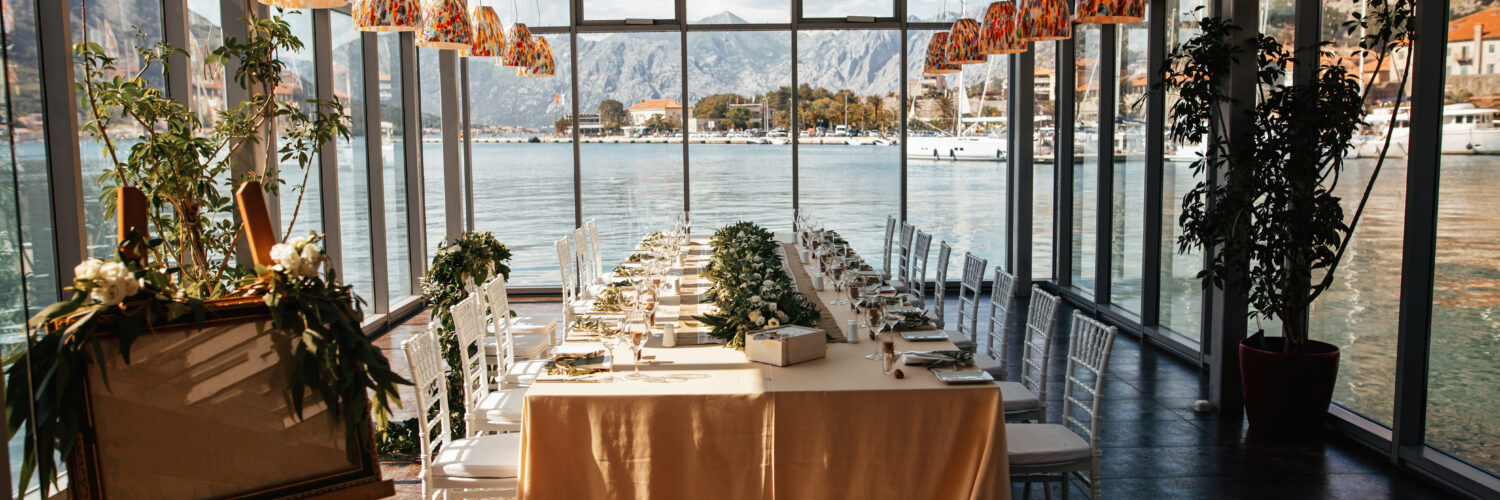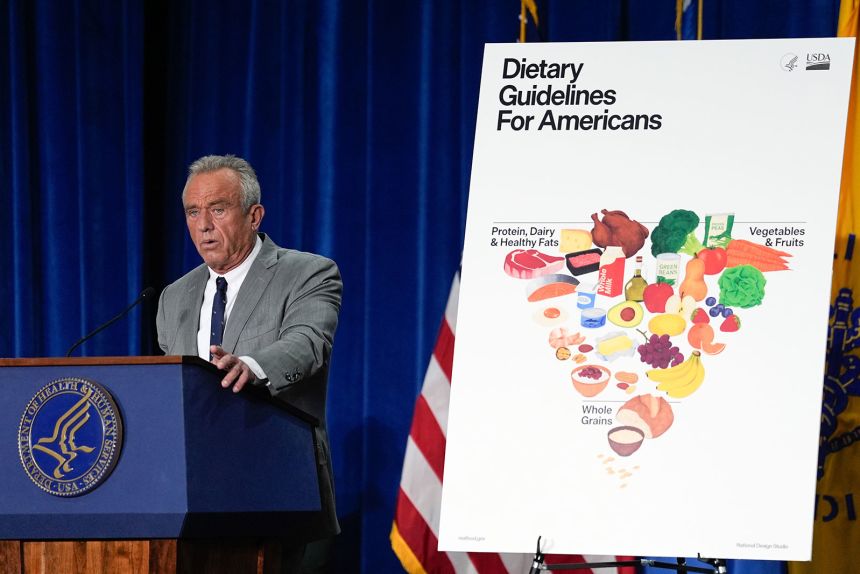Florida’s Geography: A Double-Edged Sword
Florida’s proximity to the ocean is both an asset and a liability for restaurant owners. While waterfront views attract customers and elevate the dining experience, they also expose businesses to heightened environmental risks. The state’s unique geographic location places it directly in the path of tropical storms and hurricanes, making it one of the most weather-volatile regions in the United States.
From the Panhandle to the Florida Keys, restaurants situated along the coastline must contend with a variety of environmental challenges that impact both daily operations and long-term sustainability. These include salt-laden air that accelerates corrosion of equipment, the constant threat of storm surge, high humidity levels that can cause structural wear and mold growth, and rising sea levels that increase flooding potential year over year.
Moreover, Florida’s flood-prone geography complicates property ownership and maintenance. Businesses operating within FEMA-designated flood zones are required to comply with additional regulations and are at a significantly higher risk of incurring severe financial losses. Without targeted protection, even a relatively minor storm could result in weeks of closures and tens of thousands of dollars in damage.
For these reasons, many hospitality professionals turn to affordable restaurant insurance plans Florida that are designed specifically to address the complexities of waterfront and coastal risk. These insurance solutions go beyond standard commercial policies to offer customized protection against the most pressing threats, including flood damage, windstorms, business interruption, and liability related to hazardous weather conditions. By investing in tailored insurance coverage, Florida restaurant owners can continue delivering exceptional experiences to their guests without compromising financial security or compliance with local ordinances.
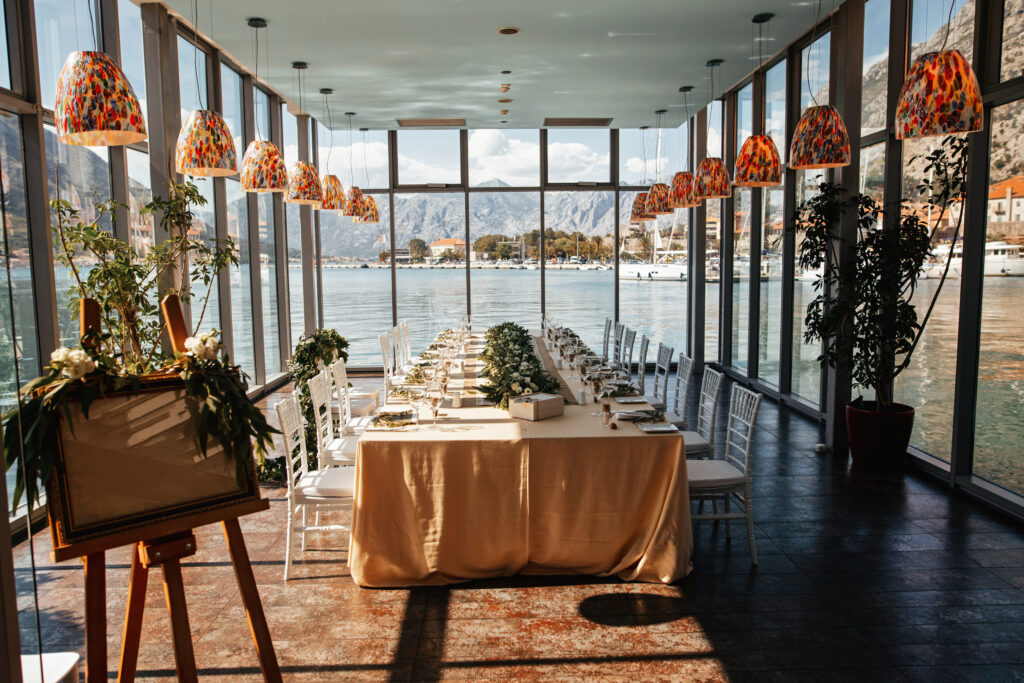
Common Risks in Coastal Zones
Restaurants located along Florida’s coastlines enjoy scenic views and high foot traffic—but they also face a unique set of environmental and operational challenges. Coastal and waterfront zones bring a host of risks that inland establishments may never encounter, making proper insurance coverage not just a smart decision, but a necessary one.
Storm Surge and Hurricane Damage
Florida’s hurricane season poses a serious threat to any business situated near the water. High winds, flying debris, and powerful storm surges can lead to severe structural damage, prolonged closures, and extensive financial losses. Even with hurricane preparedness protocols in place, no restaurant is fully immune to the unpredictable force of nature.
Saltwater Corrosion
Salt-laden air is another quiet but destructive threat. Over time, salt accelerates the corrosion of metal fixtures, kitchen appliances, refrigeration units, and HVAC systems. This can lead to frequent maintenance issues and unexpected equipment failures—two problems that can significantly disrupt daily operations and increase overhead costs.
Flooding and Water Intrusion
Coastal restaurants are often at a higher risk of flooding, not just from storms but also from rising tides and poor drainage infrastructure. Water intrusion can damage flooring, furniture, electrical systems, and food inventory. In some cases, it can also lead to dangerous mold growth or long-term property degradation if not addressed quickly.
Increased Liability Exposure
Outdoor seating areas near docks, patios on uneven terrain, and slippery walkways make waterfront properties more susceptible to guest and employee injuries. Add to this the unpredictability of Florida weather—like sudden rainstorms or strong gusts—and the potential for liability claims increases significantly.
Understanding Insurance Gaps in Coastal Restaurant Operations
Coastal restaurant owners often assume that their standard insurance policies will cover the full spectrum of risks they face. Unfortunately, that assumption can lead to devastating consequences when disaster strikes. The reality is that many off-the-shelf insurance packages are not designed with the unique exposures of waterfront operations in mind.
Why Standard Coverage Falls Short
While general property and liability insurance may provide a foundational layer of protection, they frequently exclude critical risks that are prevalent in coastal environments. Some of the most common and costly gaps include:
- Flood damage
- Windstorm damage
- Utility service interruptions
These coverage exclusions can leave restaurant owners exposed to significant out-of-pocket expenses. In some cases, a single uninsured event—such as a flooded kitchen or extended power loss—can permanently shutter a business that isn’t financially prepared.
This is why working with a knowledgeable insurance partner is crucial. Commercial Insurance Services (CIS) specializes in designing affordable restaurant insurance plans Florida that address these specific gaps, ensuring that coastal businesses are protected before, during, and after a storm.
Regulatory Pressures in Coastal Areas
Beyond environmental threats, coastal restaurants in Florida must also navigate a complex web of regulatory requirements that directly impact insurance decisions.
- Local zoning ordinances often dictate how and where a restaurant can rebuild after damage.
- Updated building codes require storm-resistant materials and elevation standards, which can drive up repair costs if not anticipated in the policy.
- FEMA floodplain management rules impose certain insurance conditions for properties located in high-risk flood zones, and non-compliance can result in denied claims or increased premiums.
Failure to meet these regulatory standards doesn’t just put a business at legal risk—it also jeopardizes its ability to recover after a disaster. Permits may be delayed, rebuilds may be denied, and financial aid could be withheld.
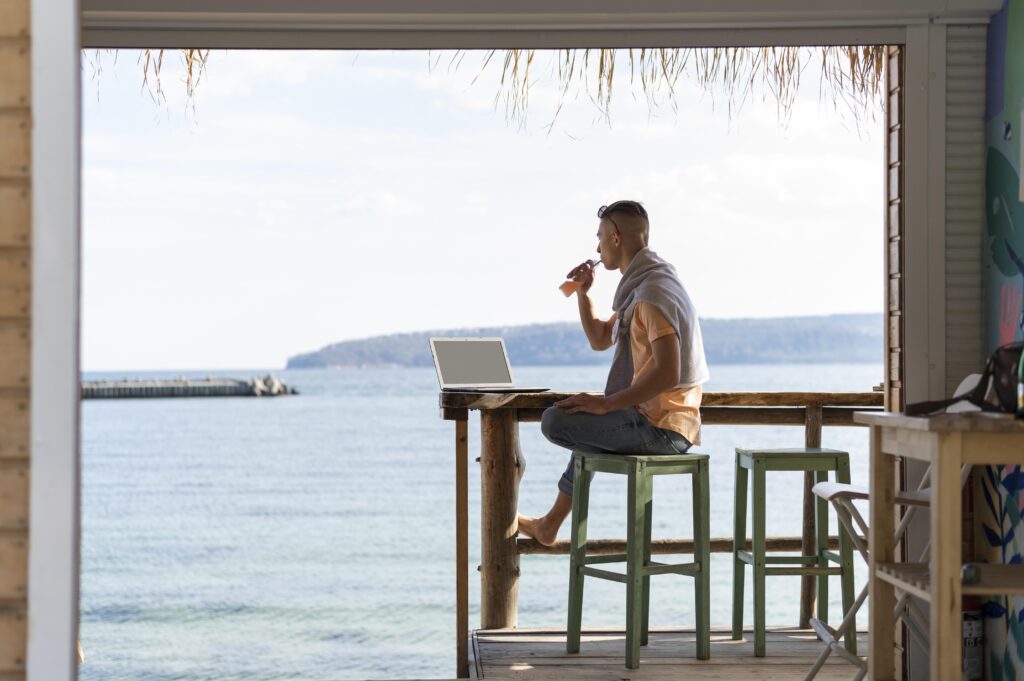
Building a Strong Foundation with Commercial Property Protection
For coastal and waterfront restaurants in Florida, the physical structure is both a defining feature and a critical vulnerability. Whether it’s a seafood restaurant perched on a dock, a bar with an open-air patio, or a fine dining establishment with panoramic ocean views, these properties require specialized commercial property insurance to ensure long-term sustainability and disaster resilience.
Special Considerations for Waterfront Structures
Waterfront restaurants are structurally distinct from their inland counterparts. Their design often includes:
- Piers and docks, which extend over water and are constantly exposed to salt air and tidal shifts.
- Elevated decks and patios, which provide aesthetic and functional appeal but are prone to storm surge damage and erosion.
- Open-air dining areas, which offer an unforgettable guest experience yet are at greater risk of wind damage, water intrusion, and equipment exposure.
These features require insurance policies that go beyond standard property coverage. A generic plan may not factor in the increased cost of repairs or the engineering standards needed to restore these structures after a storm. Instead, commercial property insurance for coastal restaurants must account for:
- Structural reinforcements, such as hurricane strapping, impact-resistant windows, and elevated foundations.
- Dock and marina infrastructure, including electrical systems, moorings, and floating platforms.
- Storm-resistant building materials that comply with updated coastal construction codes and reduce the risk of damage.
Addressing Windstorm and Flood Exclusions
Another common pitfall in commercial property coverage is the exclusion of windstorm and flood damage—two of the most pressing risks facing Florida’s coastal restaurants.
Many business owners are surprised to learn that their standard property insurance policy doesn’t cover wind or flood damage unless those coverages are explicitly added. Without these protections, even a moderately severe storm can leave the business owner with thousands—or even millions—of dollars in uninsured losses.
To build a truly comprehensive insurance strategy, restaurant owners should consider plans that include:
- NFIP (National Flood Insurance Program) or private flood insurance, depending on their property’s location, value, and risk profile.
- Windstorm coverage endorsements, especially for properties located in high-risk hurricane zones.
- Ordinance or law coverage, which covers the added expense of bringing damaged structures up to current building codes during repairs or reconstruction.
These additional coverages play a critical role in post-disaster recovery. Without them, owners may face extended downtime, denied claims, or out-of-pocket costs that threaten the business’s future.
Commercial Insurance Services (CIS) specializes in creating affordable restaurant insurance plans in Florida that include these essential protections. By addressing both physical risks and regulatory requirements, their team ensures that restaurants can recover quickly and continue serving their communities—regardless of what nature brings.
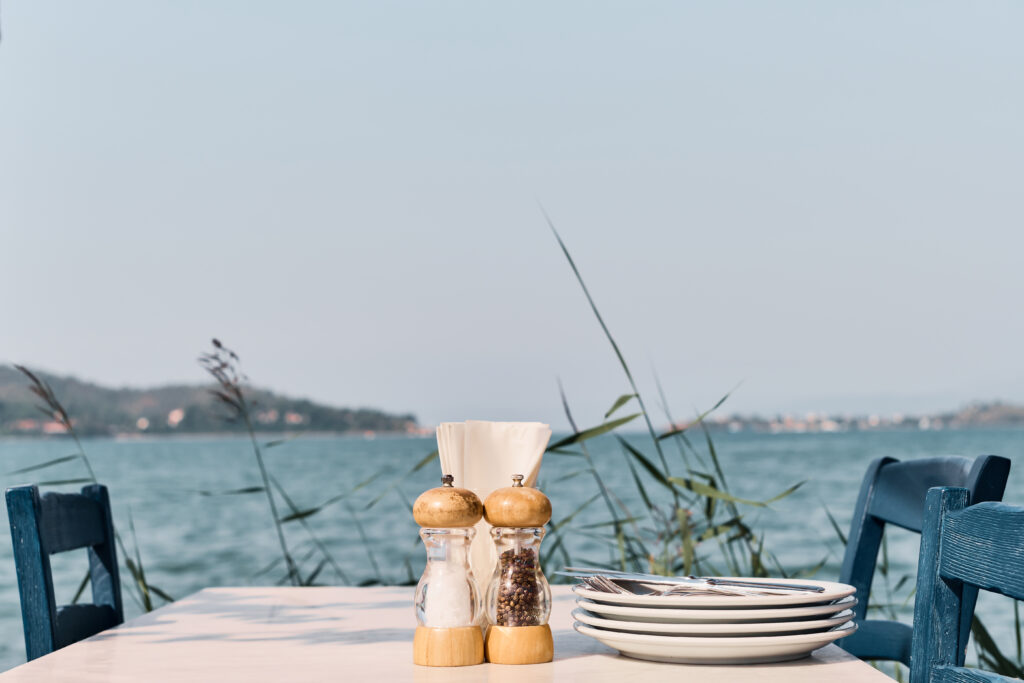
Managing Employee and Guest Safety in High-Risk Environments
Increased Premises Liability Risks
Waterfront locations are aesthetically appealing but present greater safety challenges. Wet surfaces, outdoor walkways, and dock areas increase the likelihood of slips, trips, and falls. A robust general liability policy is critical to cover:
- Guest injuries
- Legal fees
- Settlements and medical payments
Workers’ Compensation in Waterfront Conditions
Restaurant employees often work in fast-paced, physically demanding conditions that become more hazardous near water. Workers’ compensation policies should reflect:
- Slips and falls on wet surfaces
- Injuries during outdoor events or setups
- Accidents involving marine equipment or docks
Comprehensive coverage ensures staff can receive proper medical care and wage protection while reducing the business’s legal exposure.
Preparing for Weather-Driven Business Interruptions
Hurricanes, Power Outages, and Lost Revenue
In Florida’s hurricane-prone regions, business interruption insurance is essential. This type of coverage helps restaurants recover lost income when forced to close temporarily due to covered perils. Business interruption insurance can include:
- Lost revenue from closures
- Costs for temporary relocation
- Ongoing payroll and fixed expenses
Coverage Triggers and Waiting Periods
Business interruption coverage typically includes a waiting period (often 48 to 72 hours) and only activates under specific conditions, such as physical damage or mandatory evacuation. Understanding these triggers is crucial when selecting a policy.
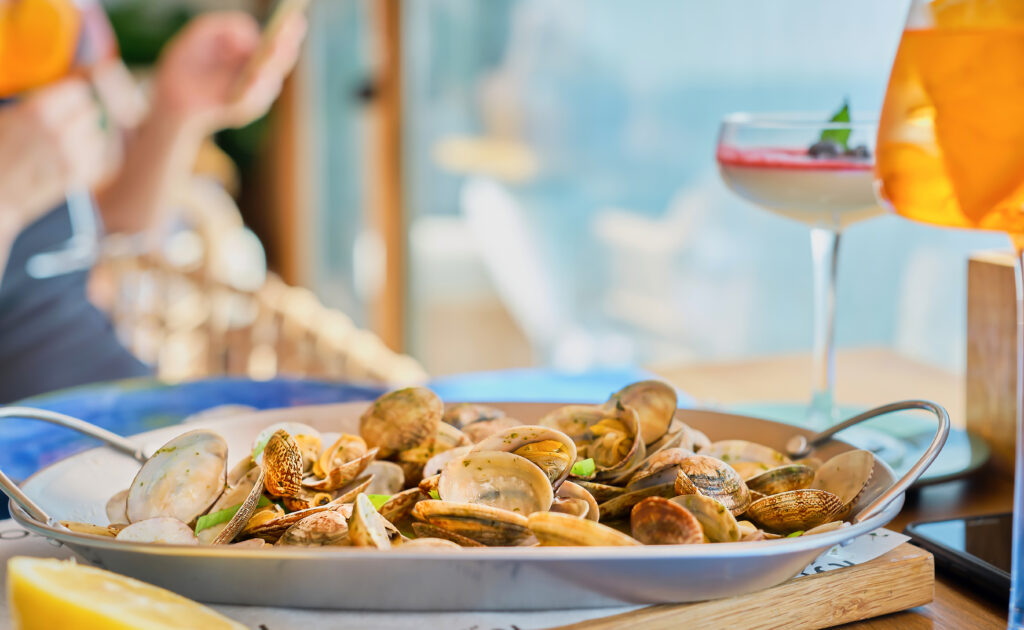
Customizing General Liability for Coastal Restaurants
Third-Party Lawsuits from Accidents or Contamination
Restaurants near the water must prepare for potential lawsuits stemming from foodborne illness, slip-and-fall incidents, or alcohol-related events. Risks increase when hosting:
- Tourists unfamiliar with terrain
- Seafood-focused menus with higher contamination risk
- Outdoor or dockside events
Liquor Liability and Waterfront Events
Restaurants that serve alcohol near water or host private events must carry liquor liability insurance. Coverage can protect against:
- Injuries caused by intoxicated patrons
- Property damage from events
- Legal defense and settlements
This is especially relevant for venues offering weddings, live music, or group functions on or near the water.
Regulatory and Legal Considerations Unique to Florida
Florida-Specific Coverage Requirements
Running a restaurant in Florida’s coastal regions isn’t just about managing day-to-day operations—it also involves navigating a complex regulatory landscape. From state-mandated insurance minimums to federal flood zone compliance and evolving local building codes, coastal restaurant owners must stay vigilant to ensure their business remains protected and legally compliant.
- Higher liability limits
- Flood insurance compliance
- Expanded property protection
While these baseline policies meet state regulations, they fall short in covering the unique exposures coastal restaurants face. For waterfront businesses, enhanced insurance protection is not just advisable—it’s essential. Upgraded policies may include:
- Higher liability limits, especially important for restaurants with large seating capacities, alcohol service, or outdoor dining areas near water.
- Flood insurance compliance, which goes beyond the standard property policy and is vital in flood-prone coastal zones.
- Expanded commercial property protection, designed to cover specialized structures like docks, elevated decks, and storm-resistant construction.
Commercial Insurance Services (CIS) helps restaurant owners go beyond basic coverage by offering affordable restaurant insurance plans in Florida that are fully customized to meet both legal requirements and the real-world risks of operating near the coast.
FEMA Flood Zones and Local Codes
For restaurants located within FEMA – designated flood zones, flood insurance is not optional—it’s a regulatory necessity. These businesses must carry flood coverage to:
- Obtain or renew operating permits
- Qualify for certain financing or SBA loans
- Remain compliant with municipal floodplain management ordinances
Flood zone designations can be checked through the FEMA Flood Map Service Center, which outlines property-specific risk levels and insurance recommendations.
Additionally, local building codes in Florida are continually updated, particularly after major hurricanes or flooding events. These codes may require:
- Elevation of buildings above base flood elevation
- Use of wind-resistant materials and hurricane tie-downs
- Retrofitting of older structures to meet current safety standards

Technology, Claims, and Crisis Response: Lessons from Real Cases
Fast Claims Matter After a Storm
Timely claims processing is one of the most critical factors in post-disaster recovery. Real-world case studies consistently show that restaurants able to resume operations quickly after hurricanes or flooding had taken proactive steps before the disaster occurred. These include:
- Maintaining up-to-date policy records, including digital backups stored in the cloud or off-site.
- Documenting property conditions and inventory pre-loss, using photos, videos, or asset management apps to create a reliable point of reference.
- Establishing emergency response plans, including who contacts the insurance provider, where records are stored, and how operations will resume post-event.
Mitigating Loss Before It Happens
The most resilient coastal restaurants don’t just react to disasters—they plan for them. Forward-thinking risk mitigation not only reduces physical damage but can also lead to lower insurance premiums or eligibility for preferred policy terms.
Common proactive strategies include:
- Installing storm shutters and impact-resistant windows, which can protect valuable interior assets from wind and flying debris.
- Using water-resistant construction materials such as concrete, fiber cement siding, and sealed flooring that can better withstand flooding and saltwater exposure.
- Securing outdoor assets, including signage, furniture, and kitchen equipment, to reduce the risk of loss or injury from dislodged items during high winds.
Insurance carriers often reward these steps with discounts or rate reductions—but only if they are disclosed and documented. Working with a knowledgeable partner like Commercial Insurance Services (CIS) ensures that all mitigation strategies are factored into underwriting, allowing clients to access affordable restaurant insurance plans in Florida without sacrificing coverage quality.
Industry Guidance and Resources
Organizations such as the National Restaurant Association provide valuable resources on emergency preparedness tailored specifically to hospitality businesses. These tools can help restaurants develop response plans, conduct risk assessments, and train staff on safety protocols.
Combining that guidance with a strong insurance partner means restaurant owners are never alone when a crisis hits. With the right preparation and the right policy, they can weather even the toughest storms—and come back stronger.
Risk Assessment and Policy Matching: Why One-Size Doesn’t Work
In Florida’s coastal environment, no two restaurants face exactly the same risks. From beachfront cafés to bayfront seafood grills, each property is subject to a unique combination of environmental, structural, and regulatory challenges. That’s why relying on a generic insurance policy is not only ineffective—it can be dangerous.
A tailored approach is essential, and it begins with a thorough, location-specific risk assessment conducted by a knowledgeable insurance advisor.
Location-Specific Risk Assessments
A proper commercial insurance strategy should never be based solely on ZIP code or business type. For Florida restaurants, particularly those near the coast, several critical factors influence the type and extent of coverage needed:
- Distance from the waterline: The closer a property is to the shoreline, the greater its exposure to storm surge, tidal flooding, and wind-driven debris.
- Building elevation and construction type: Ground-level or slab-on-grade structures are far more susceptible to flooding than elevated buildings with reinforced foundations.
- Storm history and loss patterns: A restaurant with a prior claim history or that’s located in a frequently impacted zone may require higher limits or additional endorsements.
- Infrastructure age and resilience: Older buildings may not meet current hurricane codes or FEMA floodplain requirements, increasing both risk and regulatory complexity.
An experienced insurance advisor can assess these variables and recommend appropriate riders—such as ordinance or law coverage, equipment breakdown, or business interruption insurance—that standard policies often overlook. These additions help close critical gaps and ensure a restaurant can recover financially and operationally after a major event.
Working with Advisors Who Understand Coastal Risks
Restaurants in Florida’s coastal regions benefit most from working with insurance professionals who specialize in this complex and dynamic environment. Advisors with deep knowledge of regional risks can offer more than just policies—they deliver strategic insight and proactive protection.
Trusted coastal insurance advisors can:
- Recommend essential add-ons, like flood and windstorm coverage that many generic carriers exclude by default.
- Navigate compliance requirements, including FEMA mandates, state-specific insurance rules, and local building code obligations.
- Optimize policy bundles, combining general liability, commercial property, workers’ comp, and flood insurance into cost-effective Business Owners Policies (BOPs).
Commercial Insurance Services (CIS) stands out by offering affordable restaurant insurance plans in Florida that are built from the ground up for each restaurant’s location, property characteristics, and operational needs. Their team understands the high stakes of coastal ownership and provides expert guidance that goes far beyond basic coverage.
For restaurateurs looking to strengthen their resilience, the Insurance Information Institute also offers commercial insurance best practices, including insights into policy selection, disaster preparedness, and claims strategies.
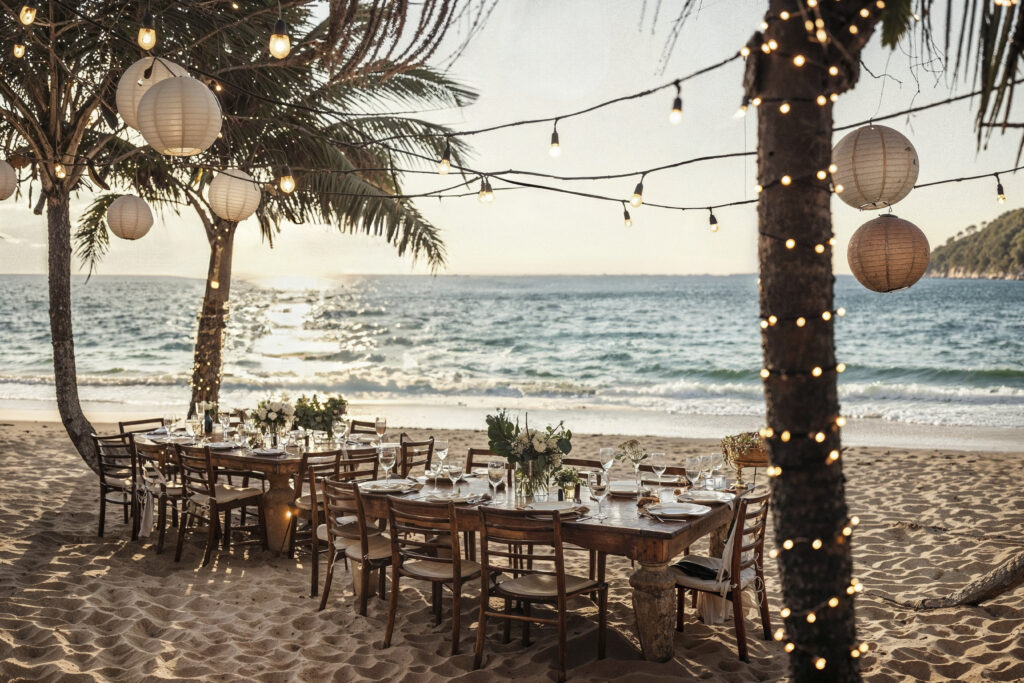
How to Evaluate and Compare Insurance Plans for Waterfront Restaurants
Choosing the right insurance plan for a waterfront restaurant is not a one-size-fits-all decision. Florida’s coastal locations demand specialized coverage that addresses both environmental hazards and regulatory complexities. To avoid gaps that could jeopardize your business, it’s essential to compare policies carefully and understand what each plan actually offers.
What to Look for in Policy Comparisons
When reviewing insurance options, restaurant owners should go beyond just the price tag. Critical evaluation points include:
- Covered vs. excluded perils: Pay close attention to exclusions, especially those related to hurricanes, flooding, or storm surge. Some policies require specific endorsements to protect against these high-risk events.
- Deductibles for named storms: In Florida, many policies apply separate deductibles for named storms—often calculated as a percentage of the property’s value. Understanding this distinction is key to assessing your true financial exposure.
- Ordinance or law coverage: After a storm, rebuilding to current codes may involve higher costs. Ensure your policy includes coverage for code-required upgrades, particularly if your building is older or located in a regulated floodplain.
- Claims service and responsiveness: Recovery after a disaster depends on how quickly and efficiently your insurer processes claims. Look for providers with proven disaster response systems and strong customer support.
For those operating near the coast, it’s wise to seek out affordable restaurant insurance plans in Florida that account for these specific conditions. Plans should be tailored to your restaurant’s location, structure, and operational risks—not just standard templates.
When to Consider an Umbrella Policy
Waterfront restaurants often experience higher foot traffic, increased liability exposures, and elevated operational risk. For this reason, many owners opt to add umbrella insurance as a cost-effective way to extend their protection.
An umbrella policy offers:
- Additional coverage beyond your general liability or commercial auto limits
- Protection against high-value claims or lawsuits
- Support for legal defense costs in catastrophic scenarios
This type of policy is especially valuable for restaurants with open-air seating near water, events involving alcohol, or elevated structures like docks and piers. When comparing affordable restaurant insurance plans in Florida, it’s worth exploring whether an umbrella policy fits into your broader risk management strategy.
The Smart Path Forward: Proactive Risk Management Through Coverage
Insurance as a Tool, Not a Last Resort
Smart restaurant owners treat insurance as a strategic investment. Policies tailored to specific environmental and operational risks serve as a buffer against unforeseen events and legal exposure.
Planning Ahead Means Staying Open Longer
The ability to reopen quickly after a storm is a direct result of proactive risk management and insurance planning. Coastal restaurant owners must ensure their policies are not just compliant, but comprehensive.
For restaurant owners seeking clarity and control, now is the perfect time to re-evaluate your coverage and ensure your business is protected from all angles. Exploring affordable restaurant insurance plans in Florida is a proactive step toward long-term resilience.
If you’re unsure whether your current policy meets today’s risks, Commercial Insurance Services (CIS) offers expert risk assessments and policy reviews tailored specifically to Florida’s coastal hospitality sector. Their team understands the insurance challenges unique to restaurant owners and provides guidance you can trust.
Whether you’re launching a new concept by the water or upgrading an established venue, USA Commercial Insurance Services (CIS) is here to help you build a stronger foundation—with personalized insurance solutions that reflect your location, structure, and business goals.
Contact Commercial Insurance Services (CIS) today to schedule your custom consultation and take the first step toward peace of mind, operational continuity, and long-term protection.
To learn more, visit https://usa-cis.com/ or contact one of their knowledgeable agents today!

